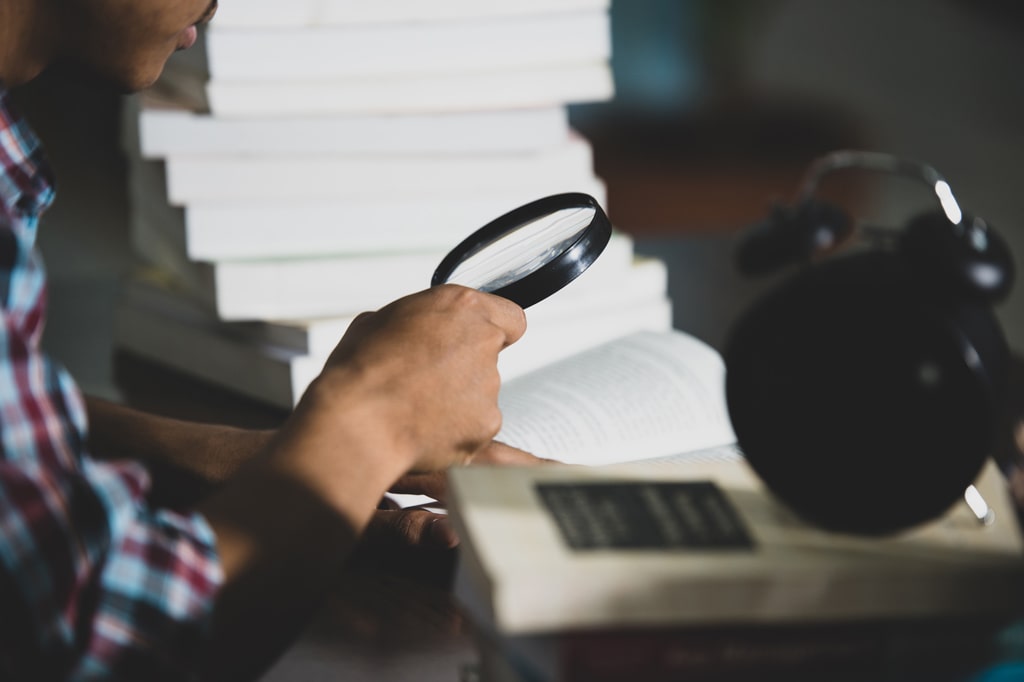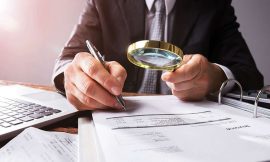India is leading its way towards attainment, progress and growth with global recognition as one of the fastest growing economies of the contemporary world. In parallel the number of fraudulent activities and ambiguous financial activities have also been accelerating all over. Consequently, businesses are exposed to risks of fraudulent activities.
Forensic refers to the application of scientific methods and techniques to the investigation of a crime. A forensic refers to a description or analysis of evidence that has been gathered in the course of a criminal investigation, and the use of that evidence to determine the facts of a case.
The purpose of a forensic is to provide a clear and concise explanation of the evidence and how it relates to the case being investigated, in order to assist in determining the guilt or innocence of a suspect, or to support or disprove a theory about what happened in a crime.
Forensic Audit
We all are familiar with the word ‘Forensic’ but most of us aren’t so familiar when the word forensic is associated with the Audit.
In order to obtain evidence that can be used in a court of law or other legal proceeding, a forensic audit looks at and evaluates the financial records of a company or individual. Since forensic auditing is a subfield of accounting, most large firms have a forensic auditing division. Accounting and auditing procedures, as well as expert knowledge of the audit’s legal framework, are necessary for forensic audits.
Forensic audits can be conducted on any type of organization, including corporations, government agencies, non-profits, and individual businesses. Some common types of fraud that forensic auditors investigate include embezzlement, bribery, kickbacks, money laundering, and insider trading.
Focus of Forensic Audit?
The main goal of a forensic audit is to gather information that can be used as evidence in a criminal or civil lawsuit. The process typically involves a thorough examination of financial records, contracts, emails, and other relevant documents, as well as interviews with employees, customers, and other relevant parties.
This type of audit is performed in cases where there is a suspicion of fraud, embezzlement, misappropriation of funds, or any other type of financial misconduct.
Who performs Forensic Audits?
A forensic audit is performed by a team of experts who have specialized training in accounting, finance, and law, and who understand the complex nature of financial crimes. Forensic auditors use a combination of accounting, financial, and investigative skills to uncover financial irregularities and determine their impact on the organization. They also work closely with law enforcement agencies, such as the Central Bureau of Investigation and the Securities and Exchange Board, to provide evidence that can be used in criminal proceedings.
What Necessitates a Forensic Audit?
Forensic audit investigations are conducted for several reasons, including the following:
- Conflicts of interest
Conflicts of interest arise when a fraudster uses their influence to benefit themselves at the expense of the business.
For instance, if a manager allows and approves erroneous expenses for an employee with whom he is personally acquainted. Despite the fact that the manager received no direct financial benefit from this approval, it is believed that he will reap personal rewards for his actions.
- Bribery
As the name suggests, offering money to get things done or influence a situation in one’s favor is bribery.
~For example, Mr.‘A’ bribed an employee of ABC Ltd company to provide certain data to aid Mr.‘A’ in preparing a tender offer to ABC Ltd company.
- Extortion
The misuse of actual or threatened force, violence, or intimidation to obtain money or property from a person or organization.
- Asset misappropriation
Asset misappropriation is the most prevalent form of fraud.
Examples include: misappropriating cash, submitting falsified invoices, making payments to non-existent suppliers or employees, misusing assets (like company equipment), and stealing company inventory.
- Financial statement fraud
Companies get into this type of fraud to try to show the company’s financial performance as better than what it actually is. Presenting falsified numbers may be done with the intention of enhancing liquidity, ensuring that top management continues to receive bonuses, or dealing with market performance pressure.
The Forensic Audit Process
The forensic audit process typically includes the following steps:
- Planning: The first step in conducting a forensic audit is to plan the scope of the audit. This includes identifying the potential areas of fraud, defining the objectives of the audit, and determining the resources needed to complete the audit.
- Gathering Evidence: The next step is to gather evidence that can be used to support the findings of the audit. This may include reviewing financial records, interviewing employees and witnesses, and examining physical evidence.
- Analyzing Evidence: Once the evidence has been gathered, the forensic auditor will analyze the data to identify any patterns or irregularities that may indicate fraud. This may involve using various analytical tools, such as data mining and statistical analysis, to uncover hidden relationships and connections between different pieces of evidence.
- Reporting Findings: After the evidence has been analyzed, the forensic auditor will prepare a report that summarizes the findings of the audit. This report will include a detailed description of the fraud or financial irregularities that have been uncovered, along with an assessment of their impact on the organization.
- Follow-up Actions: If fraud is uncovered during the forensic audit, the auditor may recommend follow-up actions, such as filing criminal charges, pursuing civil litigation, or making changes to internal controls to restrict similar incidents from occurring in the future.
How is Forensic Audit different from Financial Audit?
- The main object of Forensic Audit is to inspect whether fraud has actually taken place in books rather than expressing an opinion on the financial Statements.
- Forensic Audit involves in-depth checking, investigative & substantive process. In Financial Audit it uses simple basic techniques based on management’s requirements or as per the compliances.
- Unlike Financial audit there is no specific time limit for forensic audit it may not be completed within a predetermined time frame.
- On verification, the Financial Auditor relies on the Management Certificates or their representations. Forensic Auditors are involved in Independent verification of suspected/selected items where misappropriation is suspected.
- Financial Auditors may sometimes use the Off Balance Sheet items (like Contracts etc. to vouch the arithmetical accuracy. On the other hand, regulatory & propriety of these transactions are examined in the Forensic Audit.
- Negative/Qualified opinion expressed with/without quantification in Financial Audit. Depending on the scope, legal determination of the impact of fraud and identification of the perpetrators.
A Forensic Auditor is often involved in:
- Fraud Detection:
- Investigating and analyzing financial evidence
- Detecting financial frauds and
- Tracing misappropriated funds.
- Computer Forensics:
- Developing computerized applications to aid recovery,
- Analysis and presentation of financial evidence;
- Fraud Prevention:
- Checking the appropriateness of the internal controls or
- Providing consultation in the development and
- Putting into place a framework for internal control that is in line with the risk profile of an organization.
- roviding Expert Testimony:
- Assisting in legal proceedings,
- Demonstrating in court as an expert witness and
- Preparing visual aids to support trial evidence.
A Forensic Auditor must be proficient in the use of IT tools and techniques that facilitate data recovery and analysis in order to provide these services effectively. They also need to be familiar with legal concepts and procedures. When dealing with a problem, a Forensic Auditor must also be able to distinguish between substance and form.
Forensic Audit Report:
A report is a statement of collected and considered facts written in such a way as to provide individuals who do not already possess all of the relevant facts with information that is both clear and concise.
After the investigation is complete, the auditor is expected to give a report on the findings of the investigation, and also a summary of the evidence and conclusion about the loss suffered due to such fraud. It provides results of the audit conducted by the auditor.
Sample Table of Contents of a Forensic Audit Report may include the following:
- Executive Summary
- Background
- Origin of the audit
- Audit objective
- Proposed audit outputs
- Audit implementation approach
- Risk Analysis:
- Internal Environment Risk:
- Financial management
- Customers, products and competitors
- Information technology
- Business process
- Human resource management
- External Environment Forces:
Influence of economics and relevant market
Political and legal scenario
Technology in the sector.
- Audit Process:
- Preliminary understanding of scope and incident coverage
- Collect evidence
- Conduct interviews
- Analyse findings
- Validate inferences and conclusions.
- Evidence Of Risk Events:
- Conflicts of interest
- Bribery
- Extortion
- Theft
- Fraudulent transactions
- Inventory frauds
- Misuse of assets
- Financial statement frauds.
- Audit Recommendations:
- Logical framework approach
- Preconditions and risks
- Governance on recommendation implementation
- Stakeholders
- Budget considerations
- List of Annexures:
- Annex 1: Members of the interviews
- Annex 2: Organization chart of auditee organization
- Annex 3: financial Performance (yyyy to yyyy)
- Annex 4: Audit recommendation logical framework
- Annex 5: Analysis of key risk events.
Conclusion
Forensic audits can be time-consuming and complex, and they often require specialized knowledge and skills. It is important to work with a qualified and experienced forensic auditor to ensure that the audit is conducted in a professional and thorough manner.
In conclusion, forensic audits play an important role in detecting and preventing fraud and financial irregularities. By using a combination of accounting, financial, and investigative skills, forensic auditors can help organizations uncover hidden financial problems and take the necessary steps to prevent future incidents from occurring.
FAQ’s
1. Is it mandatory to conduct a Forensic Audit under any law?
- No, there is no specific law that mandates a forensic Audit.
- Can a Forensic Audit be performed in-house?
- Yes, A forensic audit can be performed in-house by a company’s internal auditing department. However it is effective to engage an independent third party.
- Can a Financial Auditor perform a forensic audit?
- Yes, but with specific knowledge & experience.
- Only a professional specialized training in accounting, finance, and law performs Forensic Audit?
- No, the Forensic Audit team may include other professional expertise from the field of technology, Legal experts, IT specialists, Banking experts, and from fields like insurance, real estate, intellectual property, valuators etc.
- Why is Forensic Auditing important?
- It is important because it helps organizations to detect fraud and other financial irregularities.





